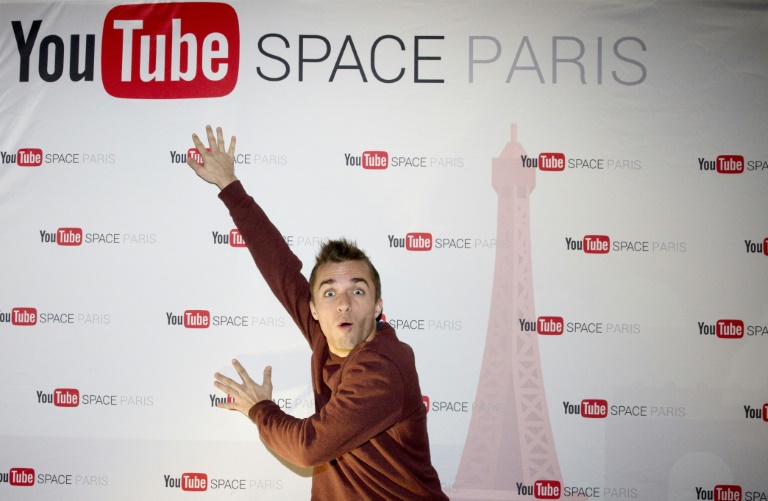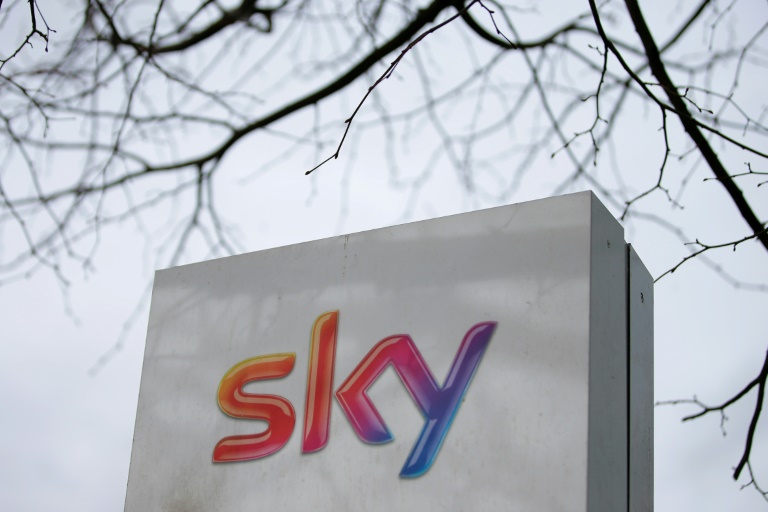America's media giants have seen this movie before: Big Tech enters an industry with piles of cash and new ways of doing business, devastating the competition.

That’s why Big Media are scrambling for partnerships and tie-ups to bolster their content arsenal in the face of a well-funded onslaught from the tech sector.
This shifting landscape helps explain talks between Walt Disney Co. and 21st Century Fox to sell key television and film assets from the Rupert Murdoch family-controlled group, and a proposed AT&T purchase of media-entertainment powerhouse Time Warner.
More deals are likely as the industry adapts to a consumer shift to online, on-demand services like Netflix, and efforts by tech giants such as Facebook and Apple to jump into original content.
“It’s an incredibly complicated game of musical chairs happening simultaneously,” said Robert Thompson, who heads Syracuse University’s Bleier Center for Television and Popular Culture.
“Everyone is trying to make sure that when the music stops they have enough content and people to keep making it for them.”
– ‘Game of Thrones’ –

Efforts to produce original shows for online platforms like YouTube are disrupting the media sector
The old model of hefty pay TV packages supporting the content creators is fading, and the struggle for power in the industry is now referred to by some analysts as a “Game of Thrones,” a reference to the popular HBO series.
Streaming services like Netflix and Amazon have already disrupted the sector. According to a report by the investment firm Raymond James, 31 percent of Americans said their primary source of video was streaming services.
About 32 percent of consumers have canceled or “traded down” to a less expensive package, and many young viewers rely entirely on Internet platforms for video, the report said.
Google-owned YouTube is also ramping up its original content offerings and Apple has reportedly created a $1 billion war chest for its television service programs.
“It’s more than taking away money and subscriptions. It’s about viewership, eyeballs,” said Bruce Leichtman of Leichtman Research Group, who follows media and entertainment.
Richard Greenfield, an analyst at BTIG Research, says the established “legacy” companies are being forced to sell, diversify or “scale up” to compete against tech players.
But Greenfield said Disney’s plan to acquire Fox’s stake in Sky TV and studio assets while gearing up for its own streaming offerings may not be enough.
Disney, which owns the ABC television network along with ESPN sports channels, still appears wedded to “legacy distribution platforms,” Greenfield said in a research note.
With more consumers moving away from big pay TV bundles, “industry fundamentals are worsening by the day,” Greenfield writes.
“At the same time the tech giants/platforms are flourishing and they are taking aim at consumer time spent with legacy media.”
Analyst Brian Wieser at Pivotal Research said the moves come amid concerns about eroding profits, and mergers can give the firms better scale.
“The pursuit of size allows for more cost efficiencies and a better negotiating position” for content, Wieser said.
– Pipes and content –

British pay TV giant Sky could be in play if Rupert Murdoch’s 21st Century Fox — which owns a 39 percent stake — sells some of its television assets
An AT&T-Time Warner deal would merge one of the largest distribution platforms — AT&T’s pay TV and Internet service — with the media-entertainment conglomerate’s HBO, CNN and other content channels, putting it on the same level as Comcast, a cable giant which owns NBCUniversal.
But the Trump administration’s Department of Justice has filed an antitrust suit to block the AT&T deal, fueling concerns the move is aimed at punishing White House foe CNN.
The “vertical integration” of a company with content as well as “pipes” could present a formidable foe to the tech sector.
And a plan by US regulators to end “net neutrality” — rules aimed at treating all online traffic equally — may force companies like Netflix and Amazon to pay more to deliver to consumers.
With relaxed rules, firms like AT&T and Comcast may be able to use some of the same tools employed by Netflix and Facebook by garnering data on viewers for promotions and advertising, according to independent media consultant Alan Wolk.
“Right now if you are ABC, you have no idea who is watching your shows,” Wolk said.
Having better data “is probably the most important thing” for these media firms, Wolk said, adding that it allows for more efficient targeted advertising.
Thompson, of the Bleier Center, said that even as the industry faces disruption, content creators — writers, directors and producers — will have more choices and potentially more bargaining power.
“I think these new tech operations can disrupt the old legacy means of distribution, but they still have to make this stuff,” he said.
While Big Tech has disrupted many industries, its roots come from a culture of math and engineering geeks who may not be adapted to the entertainment sector.
Wolk said Google-owned YouTube “bombed pretty badly” with most of its shows for a paid streaming service.
“They didn’t hire anyone with Hollywood programming experience and they underestimated the skill for this,” he said.
Apple by contrast “made a smart move” by hiring entertainment executives, according to Wolk, and Facebook is pursuing a different strategy of finding “niche” programs for devotees of certain kinds of shows.
Support Local Journalism
Add The Citizen as a Preferred Source on Google and follow us on Google News to see more of our trusted reporting in Google News and Top Stories.






